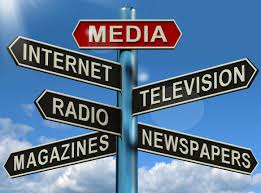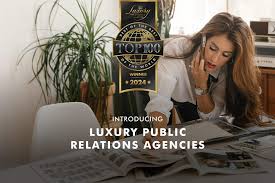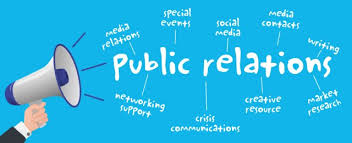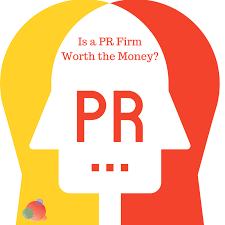Unleashing the Power of Agency: Driving Business Success in Today’s Environment
The Role of Agencies in Today’s Business Environment
Agencies play a crucial role in today’s dynamic and competitive business environment. From advertising and marketing to public relations and digital media, agencies offer a wide range of services that help businesses reach their target audiences effectively.
One of the key benefits of working with an agency is access to specialised expertise. Agencies often have teams of professionals with diverse skills and experiences, allowing them to provide strategic insights and creative solutions tailored to the unique needs of each client.
Furthermore, agencies bring an external perspective to the table. They can offer fresh ideas and innovative approaches that may not have been considered internally. This outside-in viewpoint can help businesses break through the clutter and stand out in a crowded marketplace.
Agencies also bring efficiency to the table. By outsourcing certain functions to an agency, businesses can focus on their core activities while leveraging the agency’s expertise to drive results. This can lead to cost savings, improved productivity, and better outcomes for the business.
Moreover, agencies often have access to resources and technologies that may be beyond the reach of individual businesses. Whether it’s cutting-edge analytics tools, media relationships, or creative production capabilities, agencies can provide access to a wide range of resources that enhance a business’s competitive advantage.
In today’s fast-paced world where consumer preferences evolve rapidly and competition is fierce, working with an agency can be a strategic advantage for businesses looking to stay ahead. By tapping into the expertise, creativity, and resources that agencies offer, businesses can navigate challenges more effectively and achieve their goals more efficiently.
Overall, agencies are valuable partners that play a vital role in helping businesses thrive in today’s complex business landscape. Their expertise, creativity, and external perspective bring immense value to businesses seeking growth, innovation, and success.
6 Essential Tips for Optimising Agency Operations and Success
- Clearly define roles and responsibilities within the agency.
- Communicate effectively with clients to understand their needs and expectations.
- Set realistic goals and deadlines for projects to ensure timely delivery.
- Encourage creativity and innovation among team members to stay ahead of the competition.
- Regularly review performance metrics to track progress and identify areas for improvement.
- Provide ongoing training and development opportunities for staff to enhance skills and knowledge.
Clearly define roles and responsibilities within the agency.
To ensure smooth operations and effective collaboration, it is essential to clearly define roles and responsibilities within the agency. By establishing clear expectations for each team member, including their specific duties and areas of expertise, agencies can streamline workflow, prevent misunderstandings, and maximise productivity. Clear role definitions also promote accountability, empower team members to take ownership of their tasks, and foster a cohesive working environment where everyone understands their contribution towards achieving agency goals.
Communicate effectively with clients to understand their needs and expectations.
It is essential for agencies to communicate effectively with clients to gain a thorough understanding of their needs and expectations. By maintaining open and clear lines of communication, agencies can ensure that they are aligned with the client’s goals and can tailor their strategies and solutions accordingly. This proactive approach not only fosters strong relationships but also leads to successful outcomes by delivering results that meet or exceed client expectations.
Set realistic goals and deadlines for projects to ensure timely delivery.
Setting realistic goals and deadlines for projects is essential when working with an agency to ensure timely delivery. By establishing clear objectives and achievable timelines, both the agency and the client can align their expectations and work towards a common goal. Realistic goals help in managing resources effectively, maintaining quality standards, and avoiding unnecessary delays. By setting achievable deadlines, both parties can stay on track, prioritise tasks efficiently, and deliver results within the agreed-upon timeframe. This proactive approach fosters effective communication, accountability, and ultimately leads to successful project outcomes.
Encourage creativity and innovation among team members to stay ahead of the competition.
Encouraging creativity and fostering innovation among team members is a key strategy to maintain a competitive edge in the market. By empowering employees to think outside the box, explore new ideas, and experiment with innovative approaches, businesses can differentiate themselves from competitors and adapt to changing consumer preferences effectively. Embracing creativity not only sparks fresh perspectives and solutions but also cultivates a culture of continuous improvement and growth within the organisation. This proactive approach to nurturing innovation can lead to breakthroughs, enhanced productivity, and ultimately, sustained success in an ever-evolving business landscape.
Regularly review performance metrics to track progress and identify areas for improvement.
Regularly reviewing performance metrics is essential for agencies to track progress and identify areas for improvement. By analysing key metrics such as campaign reach, engagement rates, conversion rates, and ROI, agencies can gain valuable insights into the effectiveness of their strategies and tactics. This data-driven approach allows agencies to make informed decisions, optimise their efforts, and deliver better results for their clients. Continuous monitoring and analysis of performance metrics enable agencies to adapt quickly to changing market dynamics and ensure that they are constantly striving for excellence in their work.
Provide ongoing training and development opportunities for staff to enhance skills and knowledge.
Providing ongoing training and development opportunities for staff is essential in enhancing their skills and knowledge within the agency. By investing in continuous learning, employees can stay abreast of industry trends, develop new competencies, and improve their performance. This proactive approach not only benefits individual team members but also contributes to the overall growth and success of the agency. Empowering staff through training initiatives fosters a culture of innovation, collaboration, and professional development, ultimately leading to a more skilled and motivated workforce that can deliver exceptional results for clients.












